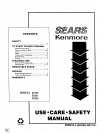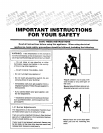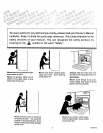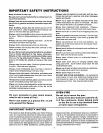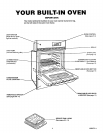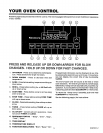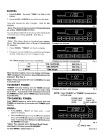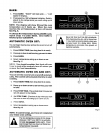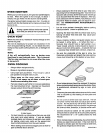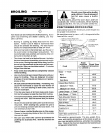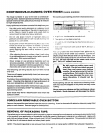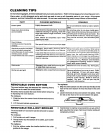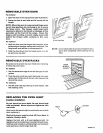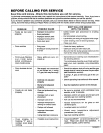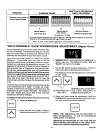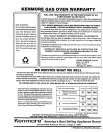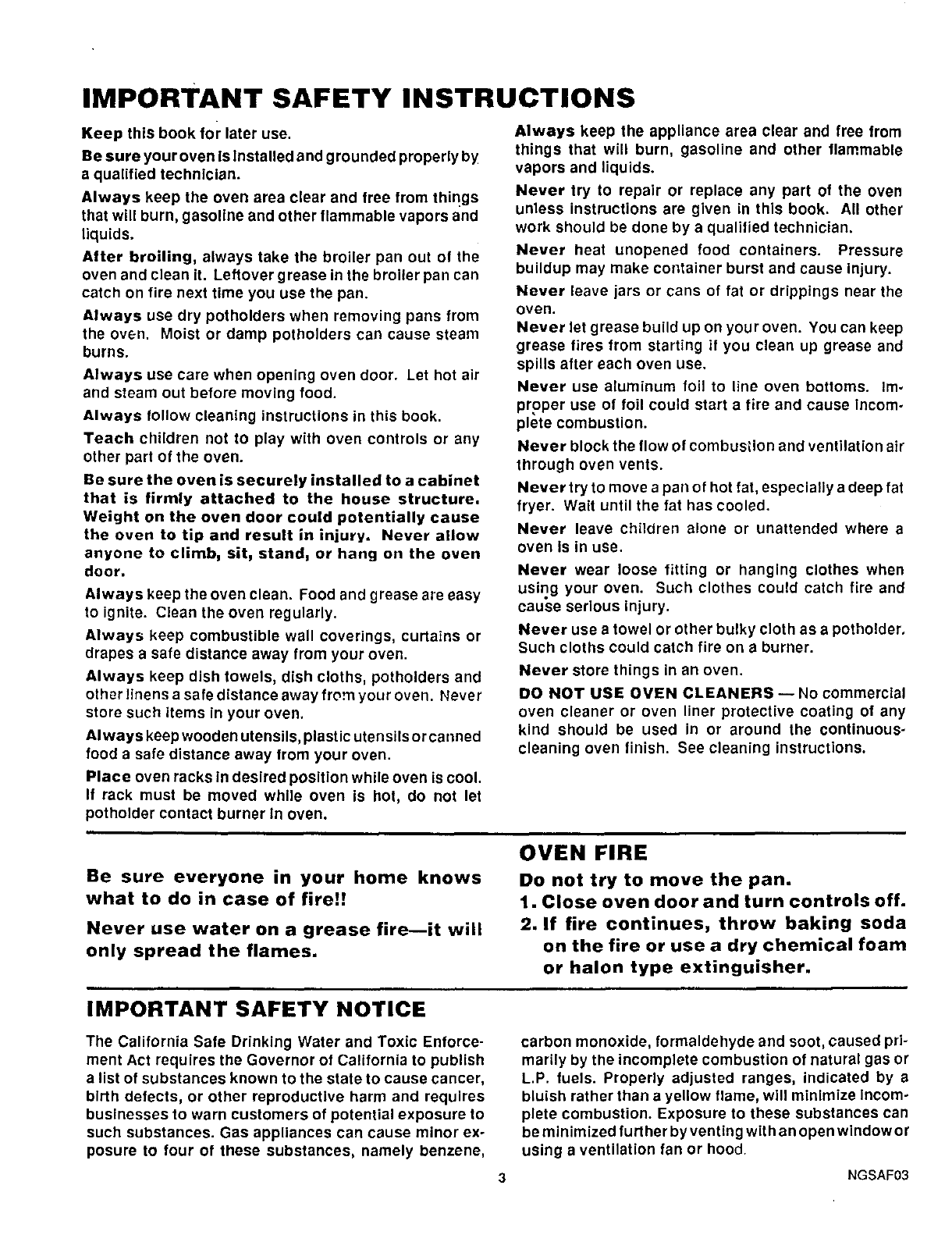
IMPORTANT SAFETY INSTRUCTIONS
Keep this book for later use.
Be sure your oven Is installed and grounded properly by
a qualified technician.
Always keep the oven area clear and free from things
that will burn, gasoline and other flammable vapors and
liquids.
After broiling, always take the broiler pan out of the
oven and clean it. Leftover grease in the broiler pan can
catch on fire next time you use the pan.
Always use dry potholders when removing pans from
the oven. Moist or damp potholders can cause steam
burns.
Always use care when opening oven door. Let hot air
and steam out before moving food.
Always follow cleaning instructions in this book.
Teach children not to play with oven controls or any
other part of the oven.
Be sure the oven is securely installed to a cabinet
that is firmly attached to the house structure.
Weight on the oven door could potentially cause
the oven to tip and result in injury. Never allow
anyone to climbj sit, stand, or hang on the oven
door.
Always keep the oven clean. Food and grease are easy
to ignite. Clean the oven regularly.
Always keep combustible wall coverings, curtains or
drapes a safe distance away from your oven.
Always keep dish towels, dish cloths, potholders and
other linens a safe distance away from your oven. Never
store such items in your oven.
Always keep wooden utensils, plastic utensils or canned
food a safe distance away from your oven.
Place oven racks in desired position while oven is cool.
If rack must be moved while oven is hot, do not let
potholder contact burner In oven.
Always keep the appliance area clear and free from
things that wiii burn, gasoline and other flammable
vapors and liquids.
Never try to repair or replace any part of the oven
unless instructions are given in this book. All other
work should be done by a qualified technician.
Never heat unopened food containers. Pressure
buildup may make container burst and cause injury.
Never leave jars or cans of fat or drippings near the
oveR.
Never let grease build up on your oven. You can keep
grease fires from starting if you clean up grease and
spills after each oven use.
Never use aluminum foil to line oven bottoms. Im-
proper use of foil could start a fire and cause Incom-
plete combustion.
Never block the flow of combustion and ventilation air
through oven vents.
Never try to move a pan of hot fat, especially a deep fat
fryer. Wait until the fat has cooled,
Never leave children alone or unattended where a
oven Is in use.
Never wear loose fitting or hanging clothes when
using your oven. Such clothes could catch fire and
cause serious injury.
Never use a towel or other bulky cloth as a potholder.
Such cloths could catch fire on a burner.
Never store things in an oven.
DO NOT USE OVEN CLEANERS _ No commercial
oven cleaner or oven liner protective coating of any
kind should be used in or around the continuous-
cleaning oven finish. See cleaning instructions.
Be sure everyone in your home knows
what to do in case of fire!!
Never use water on a grease fire--it will
only spread the flames.
OVEN FIRE
Do not try to move the pan.
1. Close oven door and turn controls off.
2. If fire continues, throw baking soda
on the fire or use a dry chemical foam
or halon type extinguisher.
IMPORTANT SAFETY NOTICE
The California Safe Drinking Water and Toxic Enforce-
ment Act requires the Governor of Ca!ifornia to publish
a list of substances known to the state to cause cancer,
birth defects, or other reproductive harm and requires
businesses to warn customers of potential exposure to
such substances. Gas appliances can cause minor ex-
posure to four of these substances, namely benzene,
carbon monoxide, formaldehyde and soot, caused pri-
marily by the incomplete combustion of natural gas or
L.P. fuels. Properly adjusted ranges, indicated by a
bluish rather than a yellow flame, will mlnlmlze Incom-
plete combustion. Exposure to these substances can
be minimized further by venting with an open window or
using a ventilation fan or hood.
NGSAF03



